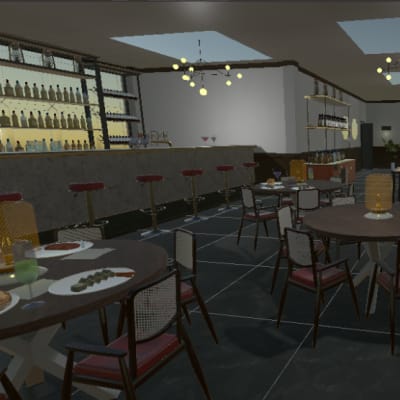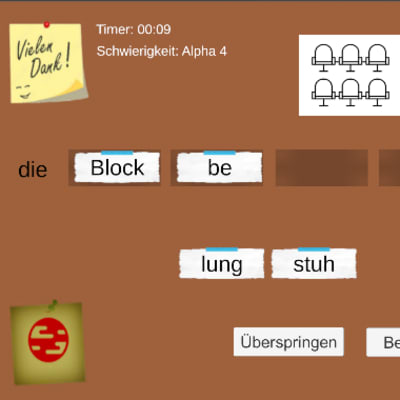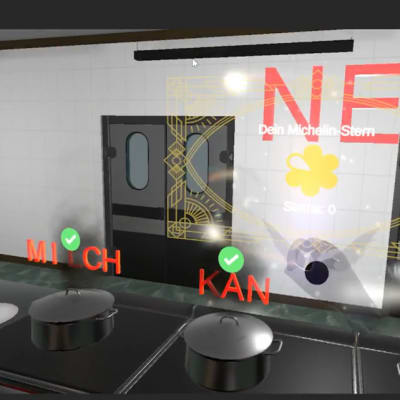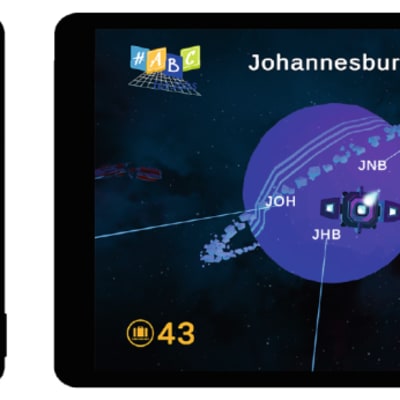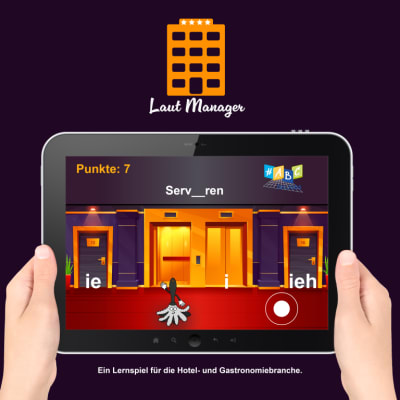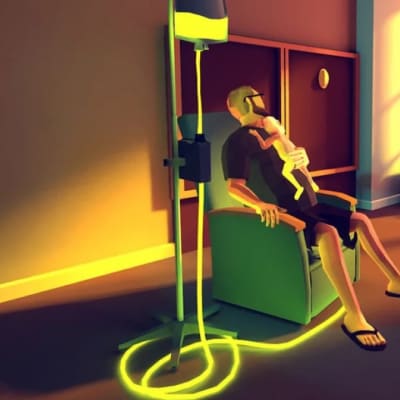Serious Games Information Center
Discover the Serious Games Portal of TU Darmstadt - the central platform for a wide range of serious games.
It's that easy: game developers log in, use the game description form and users such as therapists or educators can easily find suitable games. Games of first-class quality, awarded the RAL Quality Label, are highlighted. This is the Serious Games Portal - discover, find, experience!
Collections
Newly registered serious games in SG-IC
View allEscape the Plate
Escape the Plate is an educational game in which players solve puzzles inside a digital escape room. The goal is to decipher a numeric door-lock code by completing various exercises in a virtual restaurant, thereby successfully escaping the room. Players tackle tasks that build foundational literacy skills—for example, syllabification, spelling, and completing cloze (gap-fill) texts. Each solved task reveals one digit of the required code. This product was funded as part of the National Decade for Literacy and Basic Education 2016–2026 with support from the Federal Ministry for Education, Family Affairs, Senior Citizens, Women and Youth, under grant number W-1505A-AOG.
Syllable Soup
Syllable Soup is a virtual-reality serious game in which players take on the role of a sous-chef in a Michelin-star kitchen in Paris. By correctly assembling syllables, they collect Michelin stars while fending off approaching cockroaches. The game blends puzzle, dexterity, and movement mechanics; strengthens language skills, reaction speed, and concentration; and, thanks to its modular design, offers flexible options for expansion. This product was funded as part of the National Decade for Literacy and Basic Education 2016–2026 with support from the Federal Ministry for Education, Family Affairs, Senior Citizens, Women and Youth, under grant number W-1505A-AOG.
Sky Dash
“Sky Dash” is a serious (digital) game for mobile devices. The learning game teaches the acquisition of three-letter codes (IATA codes). Its target group is adults with limited literacy skills who are enrolled in a vocational or continuing training program in ground logistics at an international airport. For each question, players must choose the correct answer from three IATA codes. This is not done by simply clicking; instead, players must skillfully pilot their own aircraft and navigate to the correct three-letter code. This product was funded as part of the National Decade for Literacy and Basic Education 2016–2026 with support from the Federal Ministry for Education, Family Affairs, Senior Citizens, Women and Youth, under grant number W-1505A-AOG.
Loud Manager
"Loud Manager" is a serious (digital) game for PCs and mobile devices. The learning game is designed to improve and consolidate orthographic knowledge. In addition, it fosters players’ phonological awareness, reading fluency, and retention in connection with domain-specific vocabulary. The target group is low-literate adults working in the hotel and hospitality sector. Laut-Manager uses a points-based game mechanic. The game belongs to the “sidescroller” genre, a subgenre of jump ’n’ run platformers and racing/runner games, characterized by the avatar automatically moving along a course without stopping while the player must avoid obstacles and, where appropriate, collect items. The underlying objectives of the game are: Avoiding “enemy” objects. Choosing the correct sound for the missing part of a target word (for example: ss for the word Me__er [Messer]). Players control the character “Staubi” through a seemingly endless hotel corridor. From time to time, the game pauses at room and elevator doors, from which the sounds to choose from appear for the target word. The correct sound must then be selected by clicking. If the correct sound is chosen, players receive a point and another cloze word appears. As soon as a wrong selection is made, the game provides feedback by showing what the correct answer would have been, highlighting it in green. The product was funded as part of the National Decade for Literacy and Basic Education 2016–2026 with funds from the Federal Ministry for Education, Family Affairs, Senior Citizens, Women and Youth under the funding code W-1505A-AOG.
That Dragon, Cancer
That Dragon, Cancer is a narrative-based digital game created by Ryan and Amy Green with Numinous Games, released in 2016. It tells the autobiographical story of their son Joel’s battle with terminal cancer, combining real-life audio, symbolic imagery, and interactive storytelling. Players experience emotional vignettes depicting the family’s moments of hope, despair, and faith. The gameplay is minimalist, emphasizing empathy and reflection rather than challenge or competition. The game explores themes of love, loss, spirituality, and human resilience, inviting players to contemplate the meaning of life and death.
Send us a message
Contact
Dr.-Ing. Stefan Göbel
Serious Games Research Group
- Address
- Rundeturmstr. 10
D-64283 Darmstadt - Phone number
- +49 6151 16-20390

